Prescription medication costs are adding up for pet owners
Pets

Audio By Carbonatix
By Hannah McQueen for GoodRx, Stacker
Prescription medication costs are adding up for pet owners
Pets bring joy and companionship to two-thirds of U.S. households. But that benefit may not extend to their owners’ wallets. Just like humans, these canine and feline friends need medical care.
In a new survey from GoodRx Research, more than 44% of pet owners report giving their pets prescriptions, but many say the costs are straining their budgets. GoodRx, a platform for medication savings, examines the survey’s findings.
Key takeaways:
- Among pet owners, 44% gave their pet a prescription medication in the past 12 months.
- More than 1 in 3 dogs and cats are treated for chronic health conditions.
- Nearly 75% of pet owners report that their pet’s prescription cost is burdensome.
Prescription cost is a burden for most households
When comparing annual spending on prescription medications for pets, dog owners tend to spend more than cat owners. Nearly 27% of cat owners and 46% of dog owners surveyed report spending at least $200 each year on prescription medications alone.
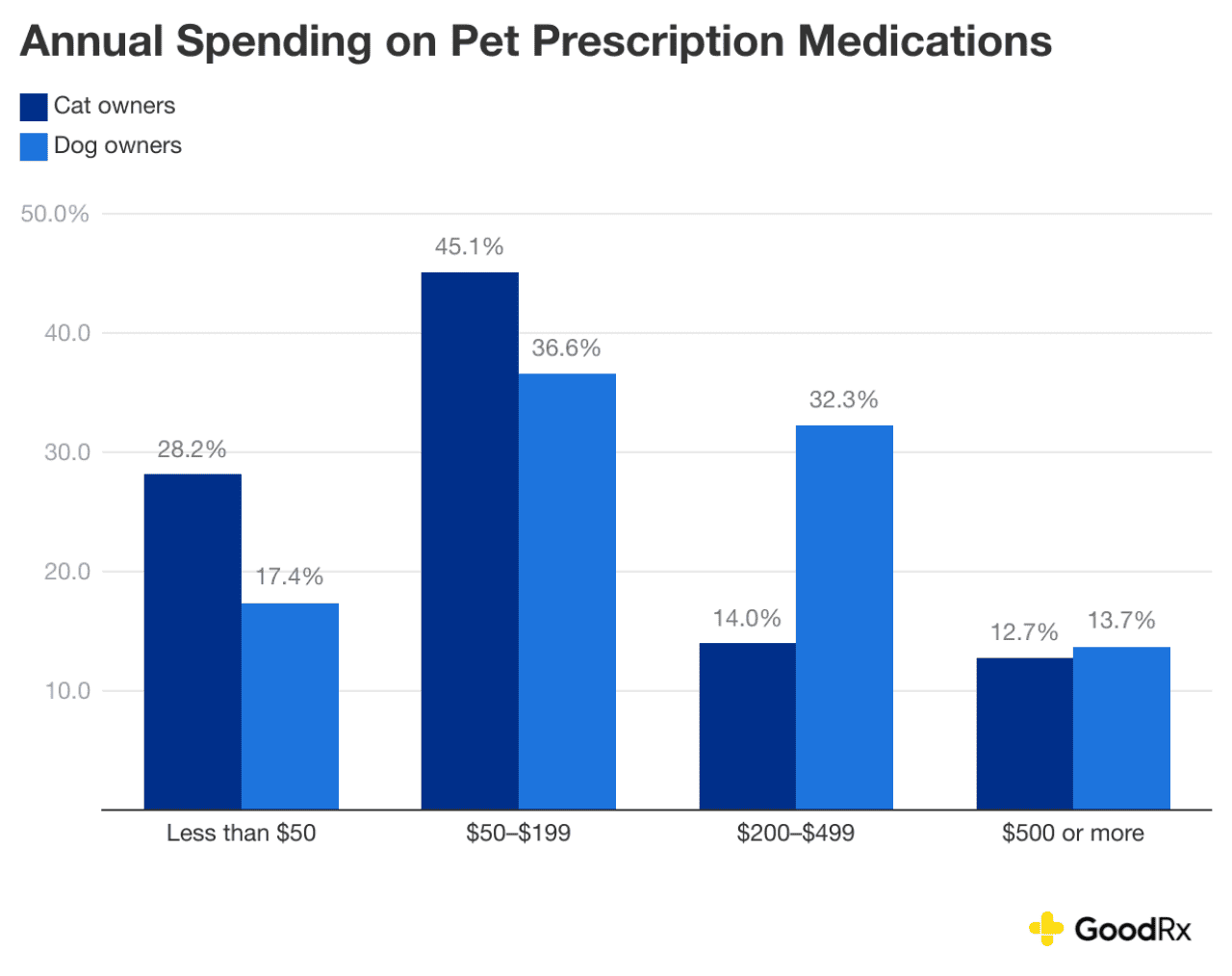
Below is a list of the top 20 most expensive pet medications by average cash price. Many of the medications on the list are necessary flea, tick, and other parasite preventatives such as Nexgard, Advantage Multi, Credelio, Revolution, and Simparica Trio. These are medications that are important for all pets, not just those with preexisting health conditions.
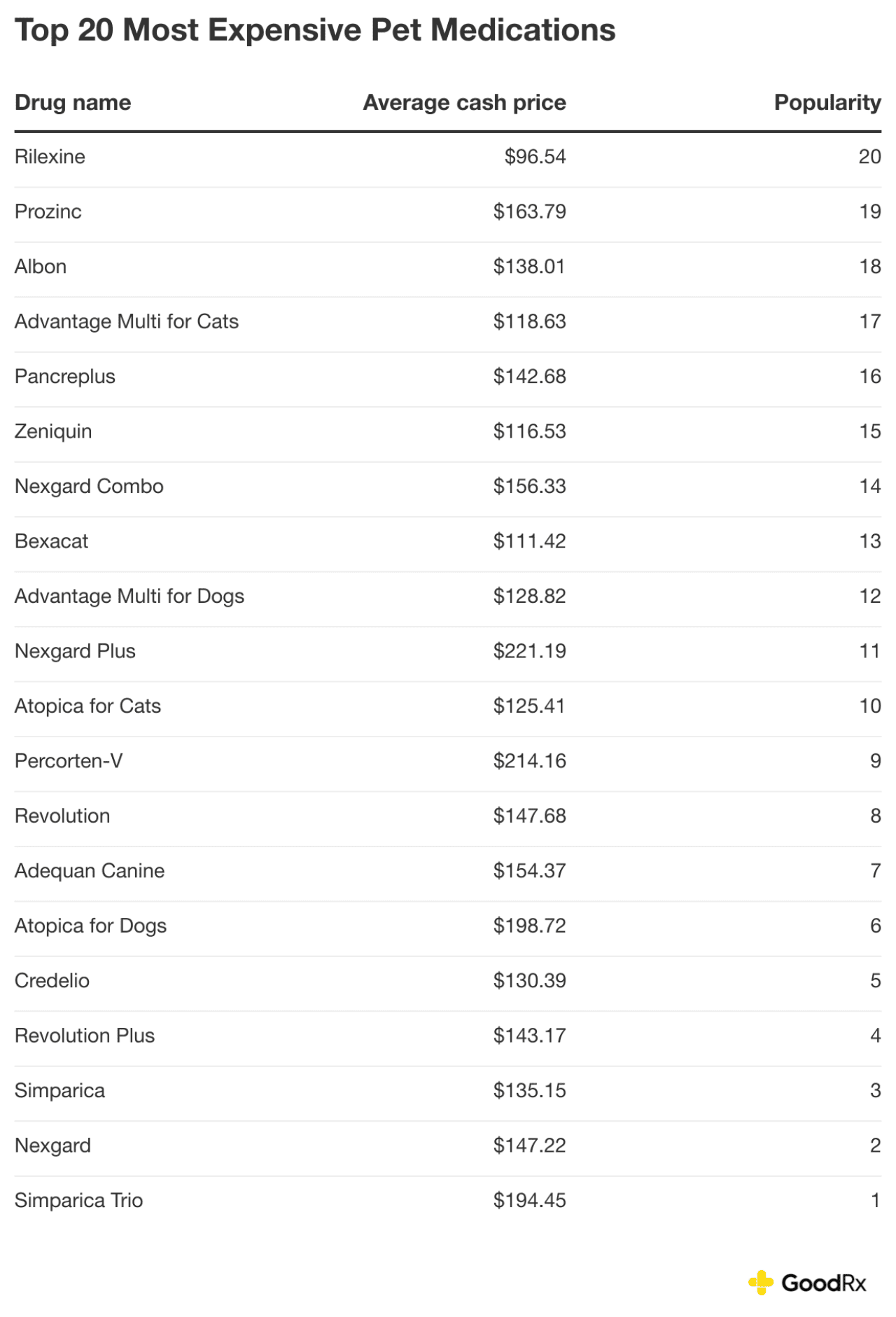
The cost of prescription medication is just the tip of the iceberg for both cat and dog owners when it comes to spending on their pets’ medical care. This is especially true for the 36% of pets reported to be treated for chronic health conditions. These conditions often necessitate care outside of medication, such as more frequent veterinarian visits, appointments with specialists, prescription food diets, and costly supplements.
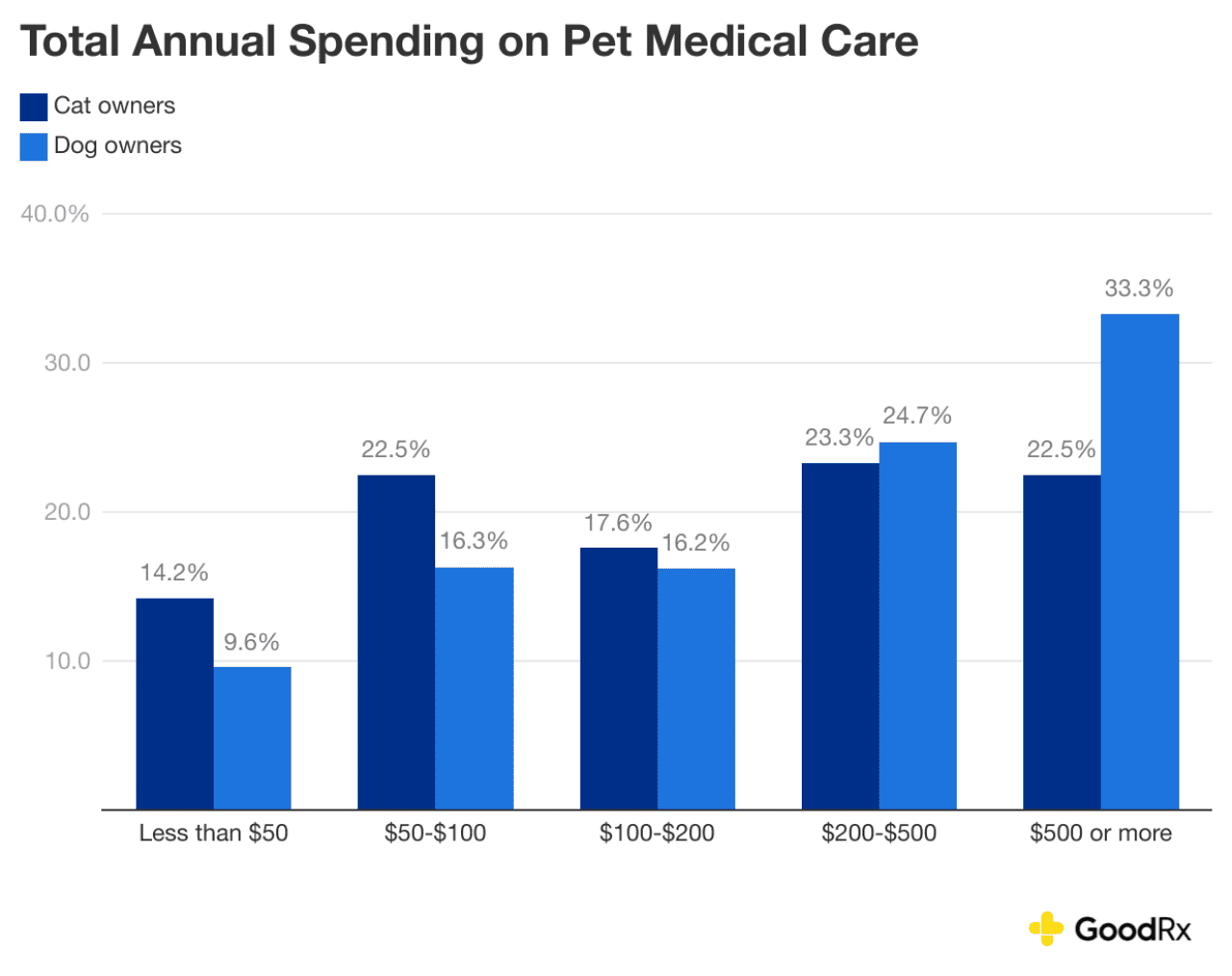
Dog owners also tend to spend more each year on medical care overall for their pets. Over 30% of those surveyed report spending more than $500 each year on their dog’s medical care. Cat owners don’t fall far behind, with nearly 23% spending that same amount each year. However, this statistic doesn’t account for owners with multiple pets, which could potentially put household spending into the thousands each year.
With these large veterinary bills, it’s no surprise that nearly 75% of respondents report some level of burden in the cost of their pet’s prescriptions. This pressure can lead pet owners to have to make difficult decisions regarding medication adherence and veterinary care to balance their other financial obligations.
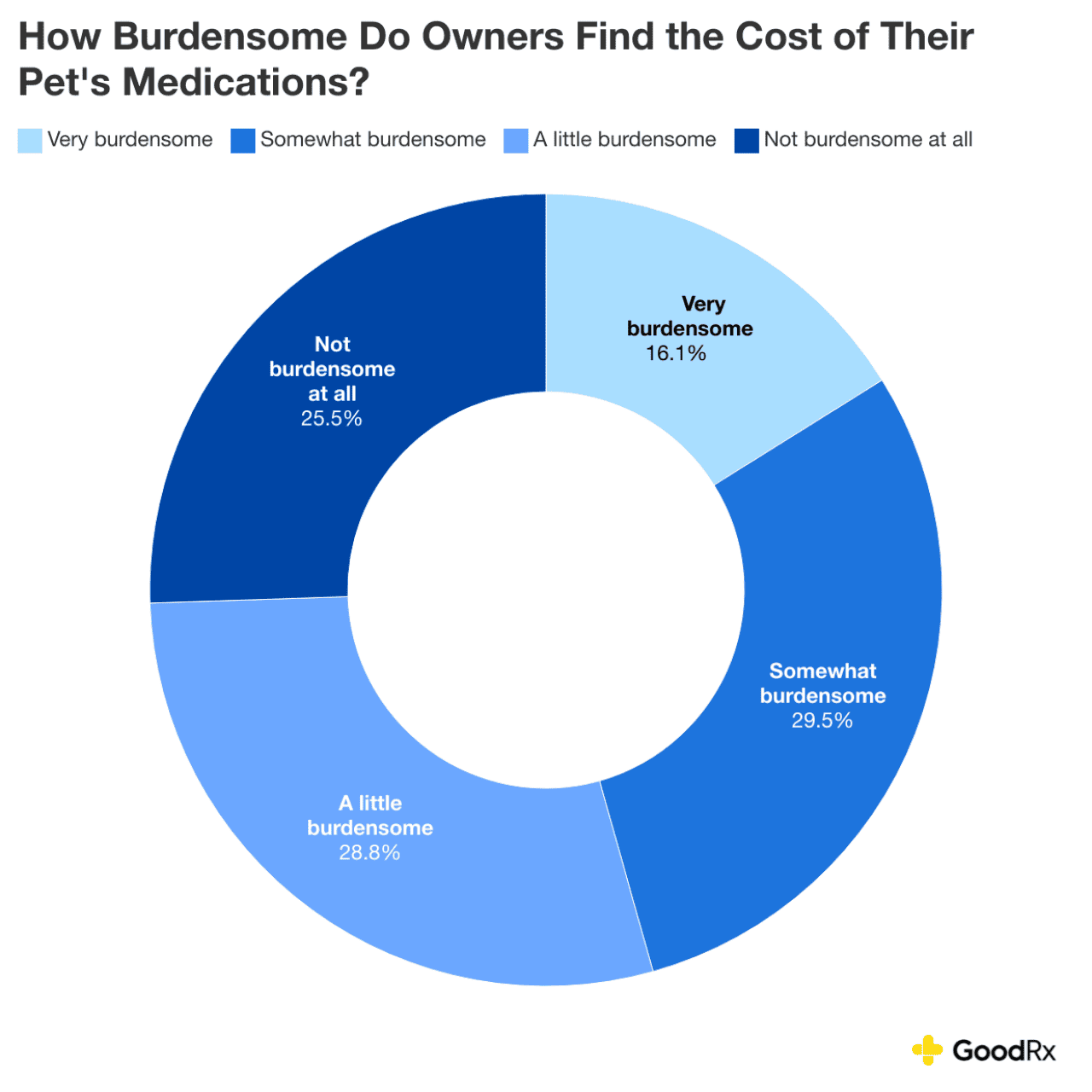
Medications for chronic conditions make up more than one-third of pet prescriptions
Some pets need multiple medications, which can make for a costly and time-consuming process. Survey data reveal that nearly 43% of dog and cat owners report giving their pets medications on a daily basis.
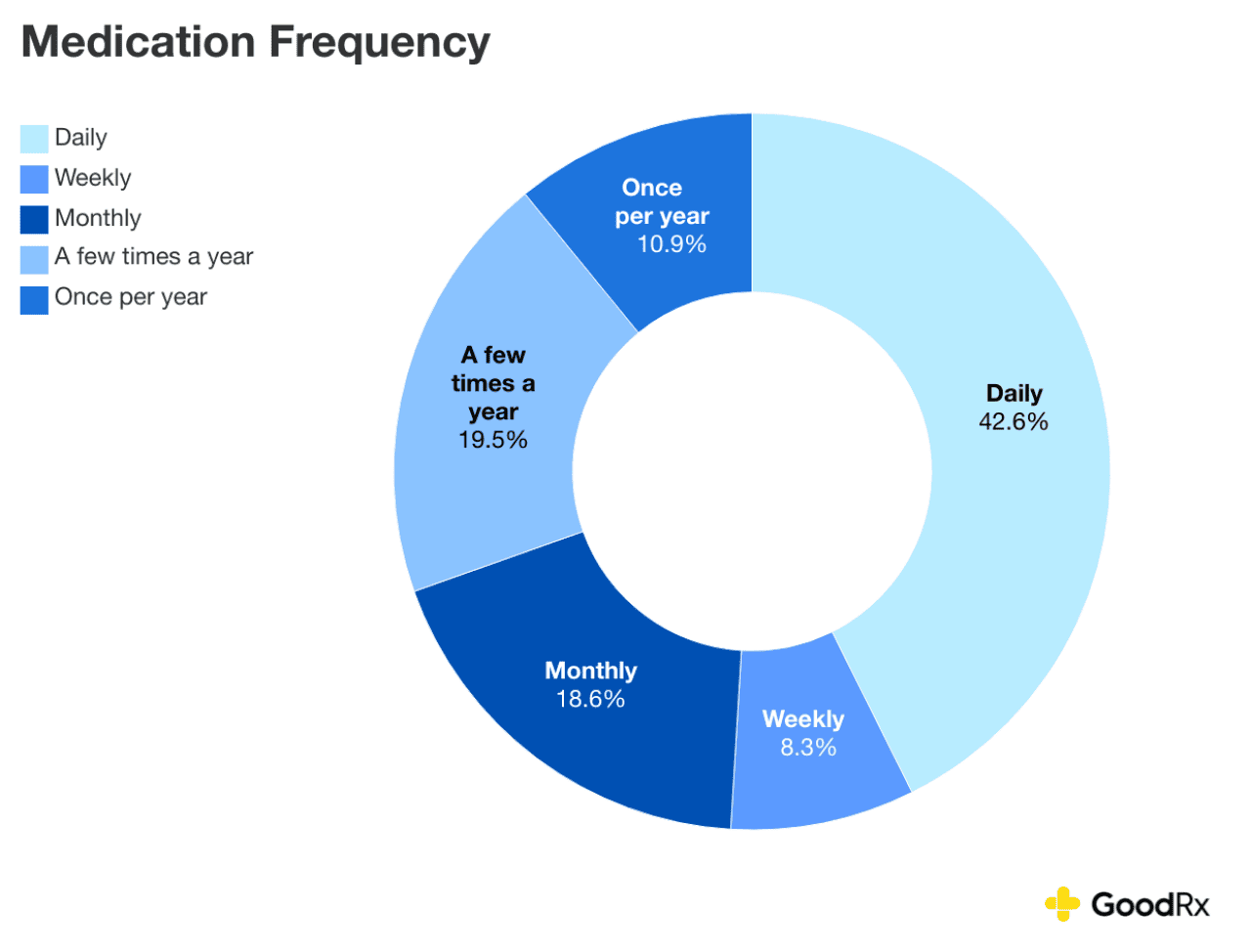
Furthermore, 36% of dogs and cats are given these medications to manage chronic conditions, which often means that they need medication for long periods of time, or even their entire lives.
Plus, it’s not uncommon for pets, especially those that are older or have more complex health conditions, to require multiple medications. In fact, the survey data reveal that nearly 1 in 3 dogs and cats are taking two or more prescribed medications.
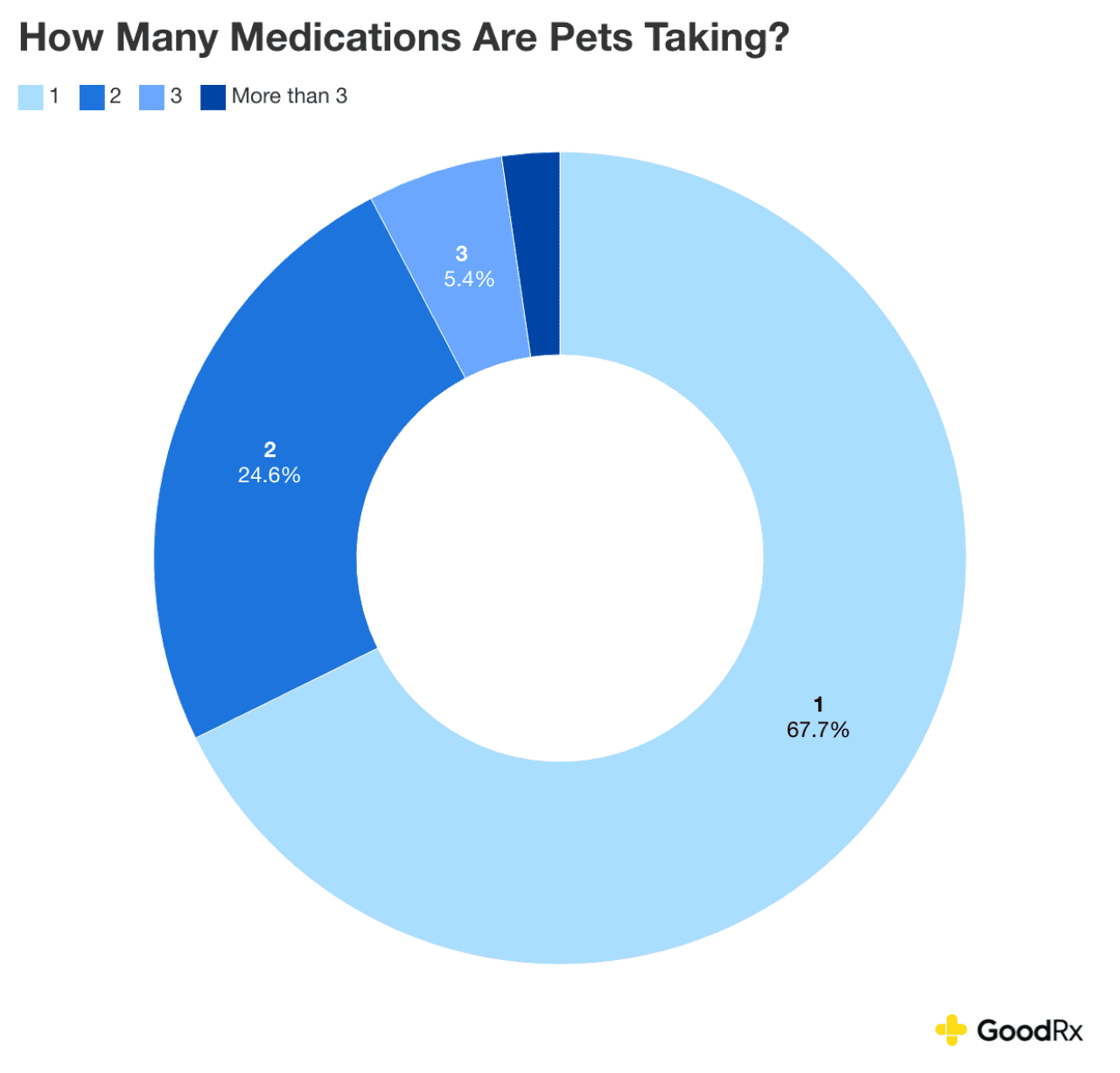
With so many factors at play, it’s easy to see how costs can pile up.
Owners stray from care due to high costs
Nearly 24% of pet owners surveyed have had to skip, delay, or change their pet’s medication due to cost.
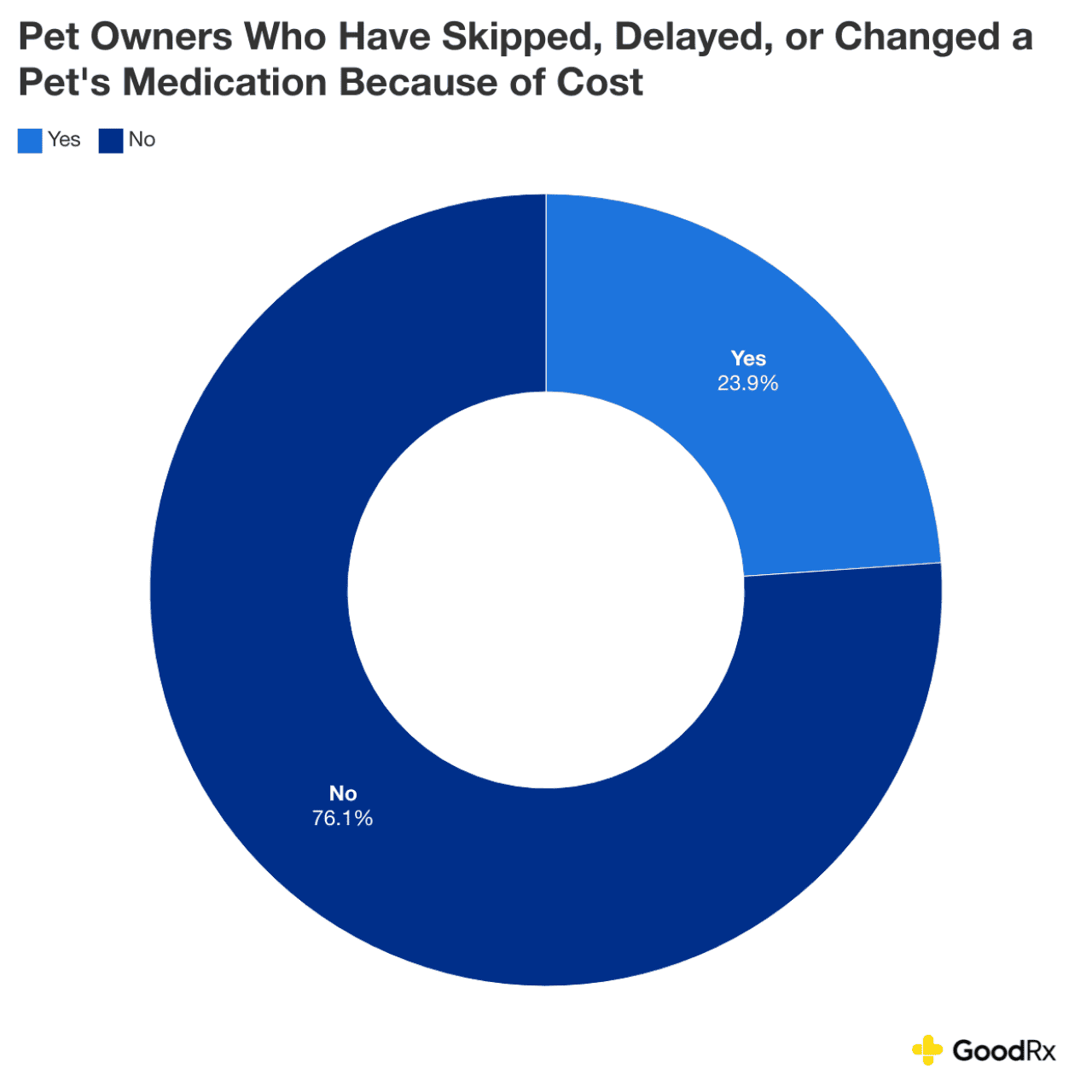
In addition, 46% of respondents report having to delay a vet visit, prescription refill, or both due to cost.
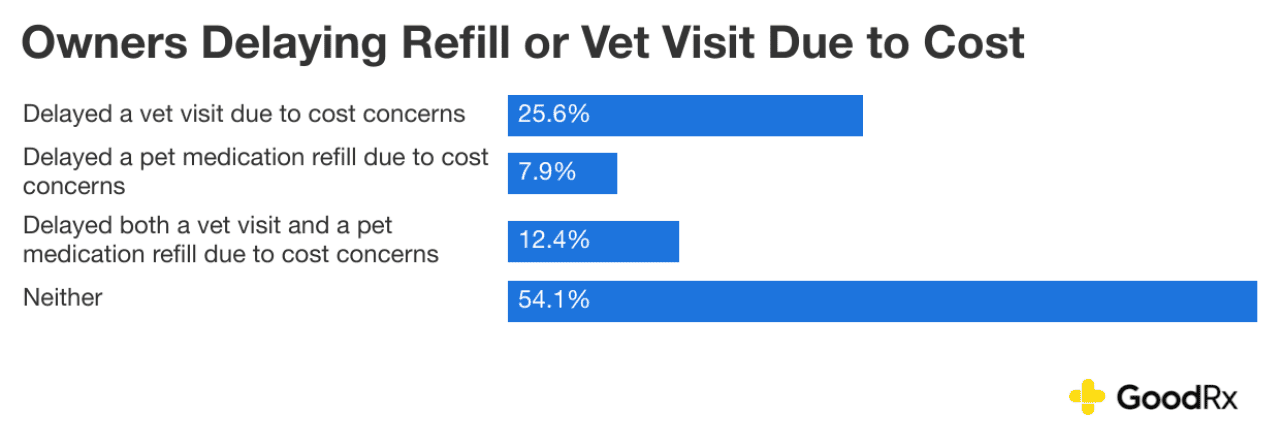
This lack of adherence and delays in veterinary care can have serious consequences for the health of a furry family member. Just over 25% of survey respondents report some level of discomfort in communicating cost concerns to their veterinarian. It’s important that owners be transparent with their pet’s veterinarian if they’re experiencing financial hardship that impacts their pet’s health. They will likely brainstorm solutions to keep tails wagging.
Pet insurance isn’t providing enough relief
Just like for humans, insurance can help shoulder the burden of medical care costs for pets. Pet insurance policies can vary widely in both the level of coverage offered and the monthly cost.
Over 21% of owners surveyed carried a pet insurance policy to help shoulder the burden of these high medical costs. However, of those with insurance, over 35% had a policy that did not cover prescription medications. These gaps in coverage can be frustrating because the policies themselves are not cheap, and many don’t cover preexisting conditions.
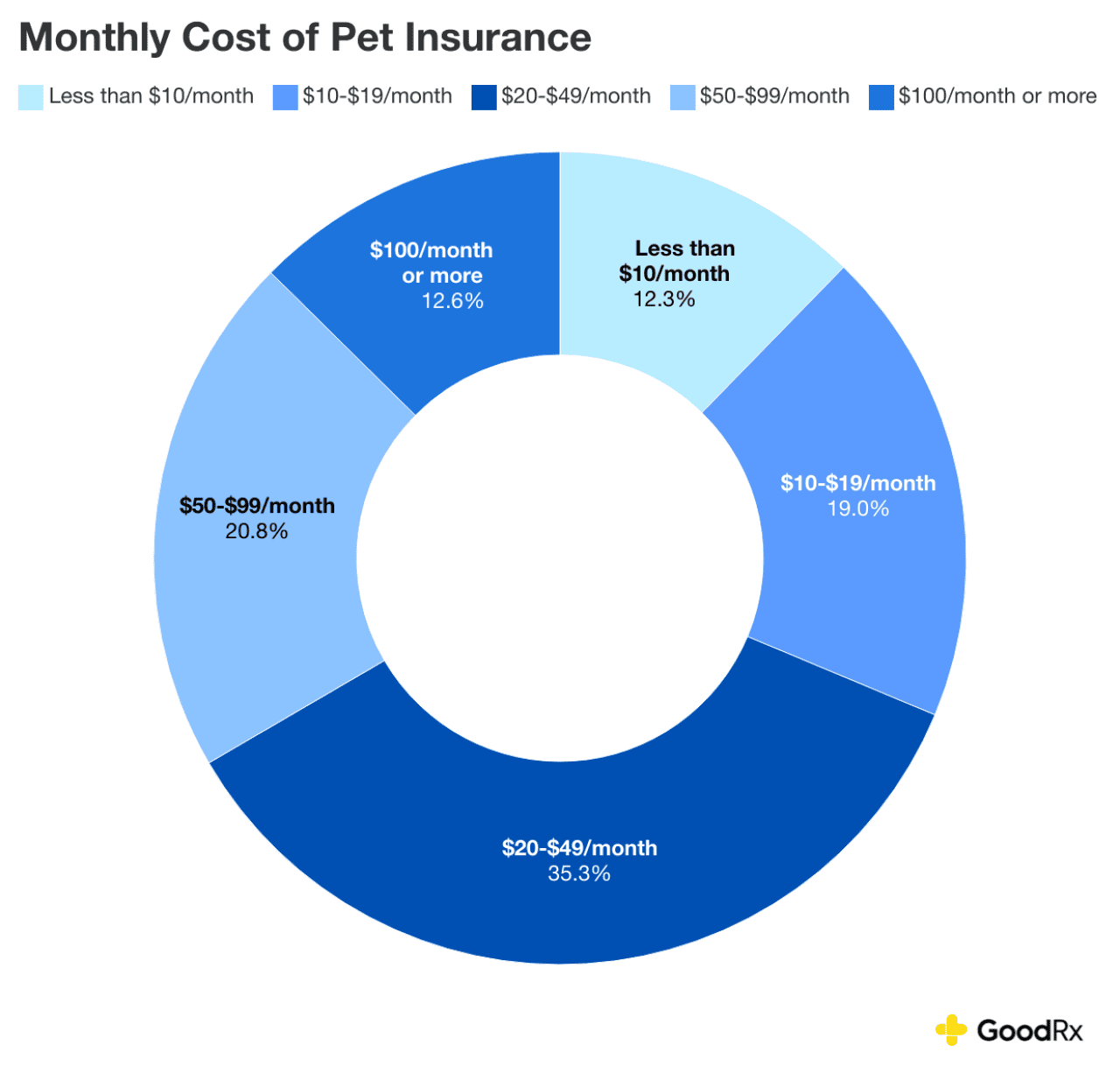
Of the survey respondents who have pet insurance, 35% spend between $20 and $49 per month on their policies. If pet insurance is repeatedly denying claims, it could be worth exploring other policies, or allocating the money spent each month on the insurance to savings designated for veterinary costs.
How to save on pet medications
Almost 62% of pet owners surveyed get their pet’s medications in person, most commonly through their vet. While in-person shopping may have once been most convenient, online marketplaces have grown in recent years and offer many opportunities for savings.
Online, pet owners can shop around for the best deals on their pet’s prescription medications. Medication manufacturers may offer savings, rebates, or reward programs for brand-name drugs. Not only could ordering online mean more savings on pet prescriptions, but the convenience of direct-to-home delivery and the ability to schedule recurring shipments mean that pets will never miss a dose, boosting medication adherence.
Methodology
The survey was run through YouGov from May 14, 2025, to July 21, 2025. The sample population was adults who reported that their dog or cat was actively taking a prescription medication or had taken a prescription medication in the last 12 months; 859 responses were screened and analyzed. Survey responses were weighted to the U.S. population using age, gender, race, political affiliation, and education level. The YouGov survey research arm provides more information.
This story was produced by GoodRx and reviewed and distributed by Stacker.

























